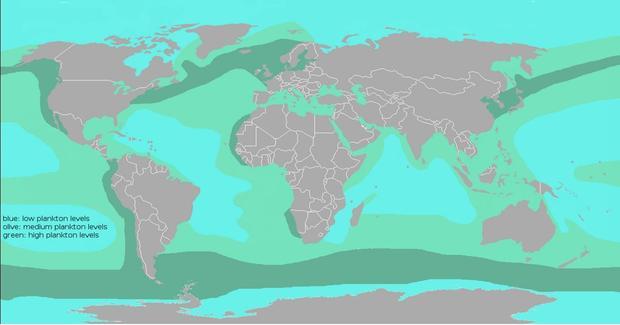Researchers from the University of California, Irvine are projecting increases in greenhouse gas emissions could suppress marine biological productivity for a thousand years or more in a study published in the journal Science on May 9, 2018.
The study points out that most studies on climate change risks focus on what will happen by 2100, and overlook extra “catastrophic effects” such as the effect global warming will have on ocean life for hundreds of years to come.
Left unchecked, warming would thaw the ice around the Earth’s poles, and particularly around Antarctica, something that is already taking place. Besides causing sea level rises, the melting Polar ice will disrupt ocean currents, winds and the growth of plankton, essential to the marine food chain.
“Marine ecosystems worldwide will be increasingly starved for nutrients,” lead author J. Keith Moore of the University of California, Irvine, told Reuters. “The climate is warming rapidly now, but in the ocean, most of that added heat is still right at the surface.”
Moore explained what would then happen: “It takes centuries for that heat to work its way into the deeper ocean, changing the circulation and removing the sea ice, which is a big part of this process. This is what’s going to happen if we don’t put the brakes on global warming, and it’s pretty catastrophic for the oceans.”
Basically, as the climate continues to warm, westerly winds in the Southern Hemisphere will become stronger, shifting poleward. This action will cause surface waters to warm, with sea ice disappearing, leading to intense nutrient trapping in the Southern Ocean.
The study suggests that plankton will move to the deeper parts of the ocean to avoid the warming waters — out of the reach of marine animals that live near the surface. The net effect will be a 20 percent drop in ocean fisheries by 2300, with a 60 percent drop in North Atlantic fisheries during the same time period.
“There is still time to avoid most of this warming and get to a stable climate by the end of this century, but in order to do that, we have to aggressively reduce our fossil fuel use and emissions of greenhouse gas pollutants.”
Interestingly, this study goes hand-in-hand with a study Digital Journal reported on just a few weeks ago. That study gave some transparency to the global fishing industry and also showed quite nicely the over-exploitation of our oceans.
So, one could look at the two studies and better understand the need for governments to get a better hand on curbing greenhouse gas emissions as well as becoming more pro-active in protecting our ocean fisheries from over-exploitation.
The study went on the assumption that greenhouse gases will continue to build up in the atmosphere, boosting average surface temperatures by 9.6 degrees Celsius (17 Fahrenheit) by 2300.
The study did not take into account the increase in ocean acidification, caused by the build-up of carbon dioxide that could undermine the ability of creatures such as lobsters and oysters to build protective shells.
Moore also suggested that more long-term climate models, like his team developed, need to be produced because current models are insufficient to judge the effect of climate change on the world’s oceans past the year 2100.
















